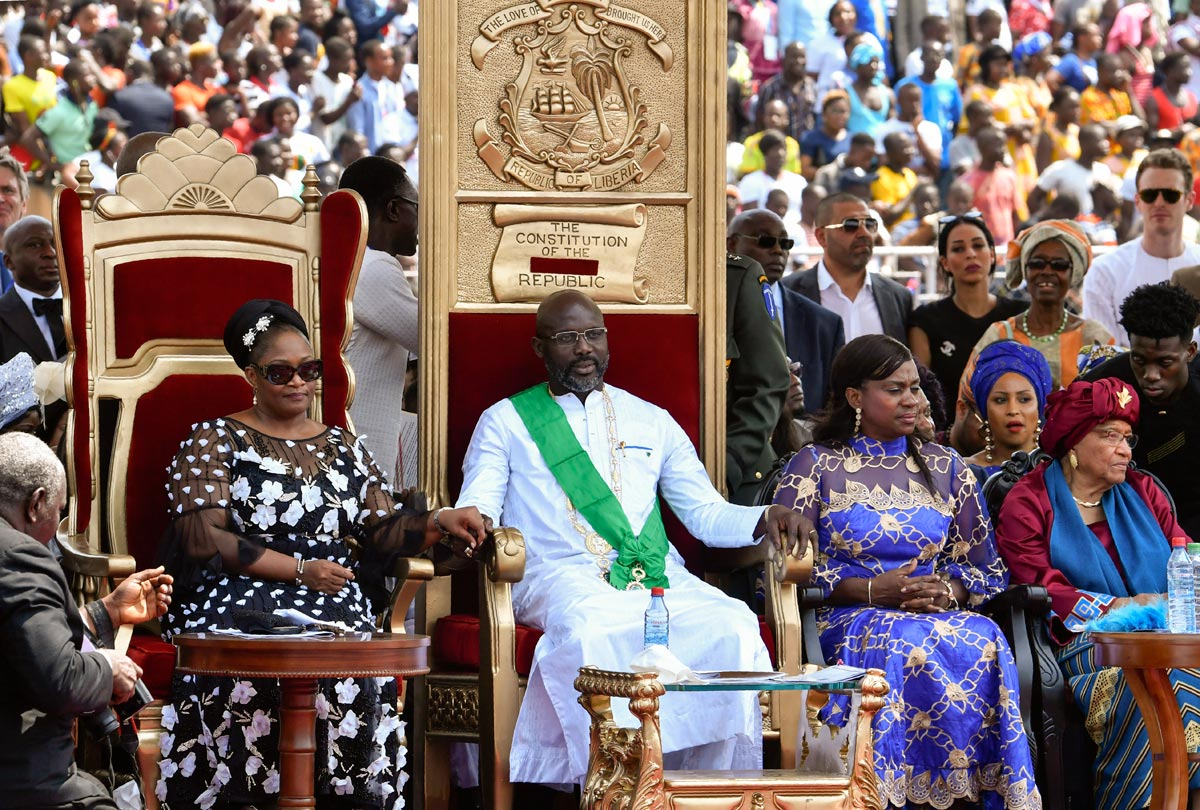During the peak of the coronavirus in Liberia, it was alleged that the Liberian police aggravatedly assaulted Liberian citizens. The police claimed that they were executing their duties and functions which are enlisted in Liberia National Police Act of 2016 (LNPA). To ordinary citizens, this claim may seem like a legitimate cause. However viewing from a legal spectacle, the actions taken by the police may potentially breach the very Act that they claim to uphold. This article attempts to answer if the Liberian Police have stepped outside its scope given LNPA through perpetrating such acts of violence against citizens. This is a hypothetical COURTROOM styled brief on how a case between the Liberian National Police as Defense and the assaulted Liberians as Plaintiff would ensue.
The Liberian Police (the Defense) may argue that they are operating within the confines of the obligation given by Section 22.87 Subsection A (VII) of the LNPA. This section mandates the Liberian Police to carry out certain actions during times of ‘Emergency Response’. However, ‘Emergency Response’ is not defined in this Act thereby producing absurdity and making this section the perfect justification of power abuse by the police. This lack of clarity contradicts the very principles of lawmaking as well as the rule of law. It is an international rule of law principle that the law must be clearly defined to its subjects to avoid illegality and abuse of power. This principle is not stated in the Liberian Constitution, thereby deconcentrating its effect on the Liberian Courts.
However, the Court, in this stance, may apply the principle of literal or purposive statutory interpretation approaches to clarify what “Emergency Response” means. It is paramount to highlight that the court functions as a body to establish the constitutional validity of the law, and not to remake it.
The Defense may argue for a more literal interpretation of Section 22.87, Subsection (VII) of the LNPA. They may seek that the court should define ‘Emergency Response’ as the ability to use “reasonably necessary force” in situations that present imminent danger to lives and properties. They may submit that their actions best ensure the public safety of Liberians, and adhere to Section 22.87, Subsection A (VII) of the LNPA. The Defence may petition the court to assess this interpretation with regards to the current subject matter, which is preventing the spread of Coronavirus. The Defense may also reference their previous policing strategies and actions during the Ebola Crisis to argue that their responses are proportionate to the risk at hand. They may also emphasize the rapid growth and spread of the disease and death casualties to validate the usage of such excessive force.
However, the Plaintiff’s lawyers, as legal critics, may submit that the court should apply the purposive approach to establish what is ‘Emergency Response’ according to section 22.87A (VII) of the Liberia National Police Act of 2016. It is a legal presumption that the interpretation of a section in an act can not be done in isolation of other sections, its purpose and INTRINSIC documentations promoting its application. Although ‘Emergency Response’ is not defined, section 22.86 subsection F (ii) gives the Liberia National Police (LNP) the ability to use ‘reasonably necessary force to preserve the peace.” The Liberian National Police has a history of using disproportionate force in critical crises. As an example, a minor boy was shot dead by the police in West Point during the Ebola Crisis under the claims of using “reasonably necessary force to preserve the peace.” Legal analysts may, therefore, contend that the use of “reasonably necessary force must not contradict the purposes of the LNPA. They may also contend that the court should consider the direct and peripheral impacts of the Defense alleged actions with regards to the Liberian Constitution of 1986. In fact, one of the purposes of this Act seeks to ensure that all policing activities in Liberia should be performed in conformity with the Liberian Constitution. The declaration of a State of Emergency does not mean the abrogation of fundamental constitutional rights as per Article 87, subsection A of the Liberian Constitution. The Constitution remains in full legal effect during the State of Emergency. Therefore, all laws prescribed in it remain operative and binding. Article 21, subsection E of the Constitution invalidates the alleged aggravated torture and inhumane actions perpetrated by the Defense.
Thus, the alleged action of brutally beating people off the streets during the time stipulated to conduct essential livelihood activities seems like an extreme act of terror and may suffice as efforts to ERODE the very foundations of our democracy. Arguably, the Liberian Legislature intended strict adherence to this section by emphatically legislating this purpose. In essence, this neglect of the Constitution camouflaged as a claim to achieve the function of Section 22.87, Subsection A (VII) of the LNPA is nefarious and brings the LNP to disrepute.
To conclude, how the Court would define “Emergency Response” would implicate or vindicate the LNP’s alleged actions in violating the fundamental rights protected by the Liberian Constitution and undermining our democracy.
Authored by Rukietu Chapin


Beautiful
I agree with that. We need to know what an “Emergency Response” entails.
I believe a clear definition of “Emergency Response” should be given, and the act of using physical torture on people should be the last option of The LNP. There are many strategies governments around the world used to maintain control. For instance temporary imprisonment that will require high fees to be set free, plus a facility that require labor jobs for those who can’t meet the require payment. Until the government set such order I think they are in error. The use of force should only be allowed when it’s necessary; such as, situations where citizens perpetrate violent acts.